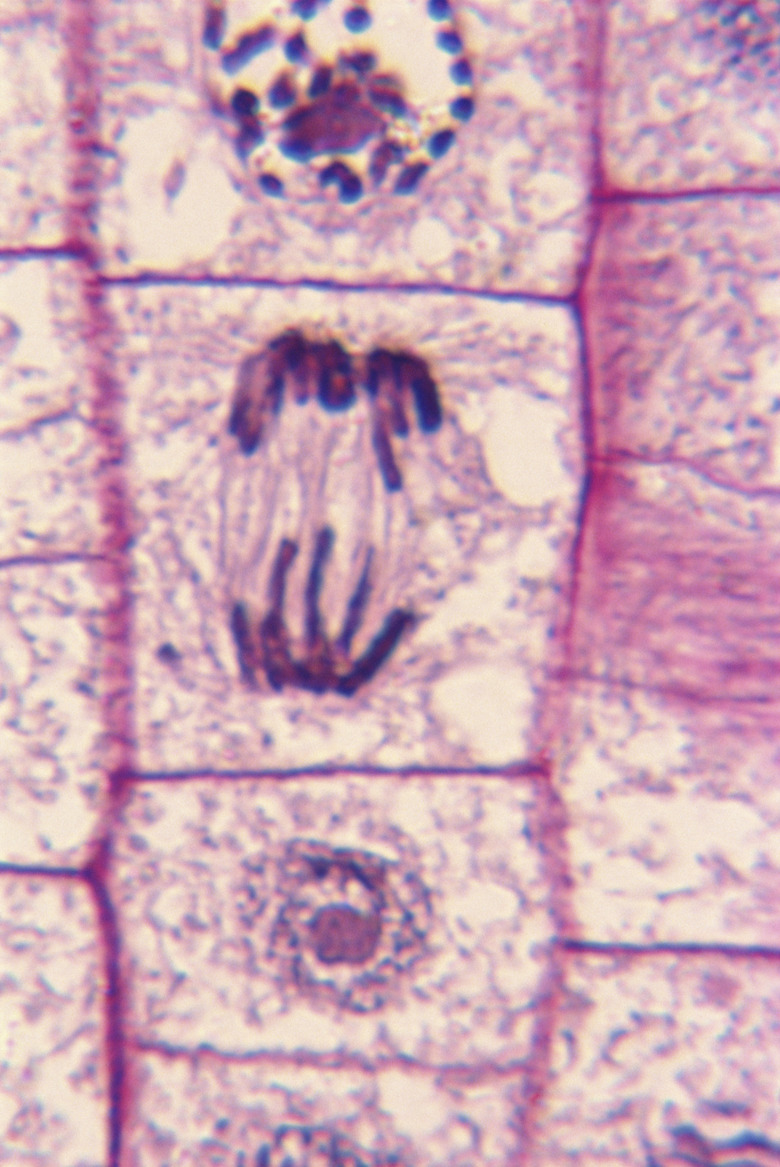What Can Happen If Meiosis Goes Wrong?
Meiosis is a precise and tightly regulated process of sexual reproduction that increases biodiversity and survival in eukaryotic organisms. A lot can go wrong during the stages of cell division.
Some errors may be inconsequential or confer an advantageous trait. However, missteps can also result in genetic defects, chromosomal abnormalities, diseases and miscarriages.
Stages of Meiosis
Stages of Meiosis
The function of meiosis is to produce genetically diverse gametes. During the first phase of meiosis, homologous chromosomes pair up and swap genetic material. Next, they head to the middle of the cell. Sister chromatids remain together as they are pulled to opposite poles of the cell by spindle fibers. Cytokinesis forms two daughter cells, each containing half the number of chromosomes.
The second phase of meiosis is more like mitosis. Chromosomes in the two daughter cells line up in the middle of the cell once again. But this time the sister chromatids are pulled apart before migrating to opposite sides. Cytokinesis splits the cells, membranes form and four haploid gametes – sperm, eggs or spores – result from meiosis.
Function of Meiosis
Function of Meiosis
Meiosis is a reason why multicellular organisms exhibit different phenotypes like red hair, blue eyes or above-average height. Genetic recombination leads to rich diversity within populations of humans, animals, plants and even fungi.
Variance within a species supports survival of the species. Evolutionary evidence suggests that organisms best adapted to their environment are more likely to survive and pass on beneficial traits to offspring.
When and Where Meiosis Occurs
When and Where Meiosis Occurs
During embryonic development, haploid germ cells form in multicellular organisms. Male germ cells enter meiosis starting at puberty and reproduce prolifically.
Meiosis in females is different. Female germ cells undergo meiosis in the fetus and produce a large – but finite – supply of oocytes that will remain in follicles of ovaries unless stimulated by menstrual hormones.
Why Is Meiosis Important?
Why Is Meiosis Important?
You may wonder what would be the consequences if there were no meiosis in organisms. If meiosis did not occur in sexually reproducing organisms, there would be no rearranging of genes before cells division. Consequently, there would be little species variability.
Environmental conditions would influence gene expression and behavior, but the population overall would have less resistance to climate change or pathogens.
Diseases Caused by Meiosis Errors
Diseases Caused by Meiosis Errors
When something goes wrong during meiosis, the mistake often happens during replication of DNA. According to the National Institutes of Health, the most common errors in human genes are single nucleotide polymorphisms (SNPs). Generally harmless, SNPs occur when nucleotide bases like cytosine and thymine get switched around.
Problems only result when SNPs disrupt gene functioning, which is associated with diabetes and heart disease, for instance. SNPs can also compromise an individual's ability to withstand certain environmental toxins.
A mutated gene can cause inherited diseases like sickle cell anemia, Tay-Sachs disease, Huntington's disease and cystic fibrosis. Mutations to the p53 gene can result in cell overgrowth and cancerous tumors.
Serious Chromosomal Abnormalities
Serious Chromosomal Abnormalities
Most cells in the human body contain 46 chromosomes; one pair of 23 chromosomes from the mother and one pair of 23 chromosomes from the father. When chromosomes do not divide correctly during meiosis, gametes will end up with too many or too few chromosomes.
Variances also occur also occur when a segments of a chromosome are reversed, misplaced or missing. Chromosomal abnormalities include:
- Patau syndrome, or trisomy 13, which results from three
copies of chromosome 13. Problems include heart defects, weak muscle tone, intellectual disabilities, brain disorders and a cleft lip. Babies with trisomy 13 have a high mortality rate within the first year of life.
- Down syndrome is a condition
known as aneuploidy, or trisomy 21. Down syndrome is due to an extra copy of chromosome 21. Children born with Down syndrome experience developmental, cognitive and intellectual delays ranging from mild to severe.
- Klinefelter syndrome occurs when males have an extra X chromosome. The condition
can inhibit growth of genitalia, hormone production and fertility.
References
- NHS: Genomics Education Programme: Errors During Meiosis
- U.S. National Library of Medicine: Genetics Home Reference: What Are Single Nucleotide Polymorphisms (SNPs)?
- The Tech Museum of Innovation: Mutations and Disease
- University of Miami Medical School: Genetics Basics – Lesson 5: Meiosis
- U.S. National Library of Medicine: Genetics Home Reference: Klinefelter Syndrome
Cite This Article
MLA
Dowd, Mary. "What Can Happen If Meiosis Goes Wrong?" sciencing.com, https://www.sciencing.com/can-happen-meiosis-goes-wrong-18992/. 5 April 2019.
APA
Dowd, Mary. (2019, April 5). What Can Happen If Meiosis Goes Wrong?. sciencing.com. Retrieved from https://www.sciencing.com/can-happen-meiosis-goes-wrong-18992/
Chicago
Dowd, Mary. What Can Happen If Meiosis Goes Wrong? last modified March 24, 2022. https://www.sciencing.com/can-happen-meiosis-goes-wrong-18992/
